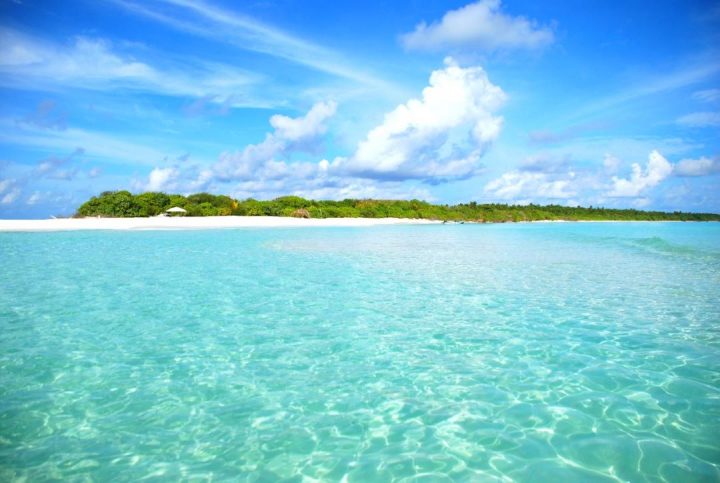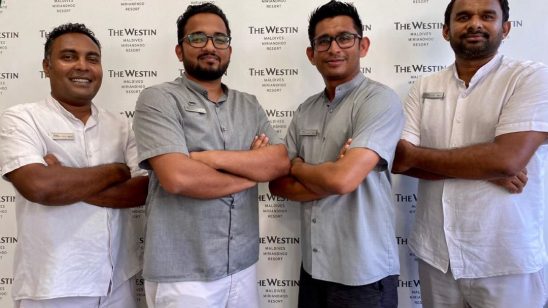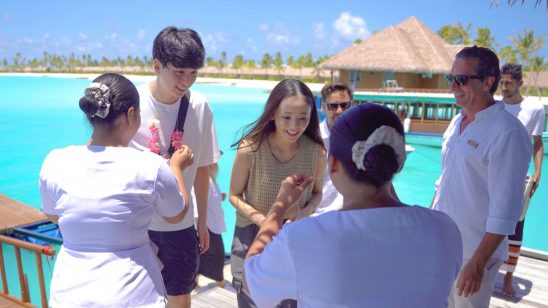
Concerns raised over tourism development in B. Goidhoo, Fulhadhoo, Fehendhoo Lagoon
The Maldives, with its pristine beaches, crystal-clear waters, and diverse marine life, has long been a paradise for tourists seeking a slice of tropical heaven. However, as the tourism industry continues to grow, concerns have been raised over the potential impacts of unchecked development on the fragile ecosystems that make the Maldives so alluring. The latest spotlight falls on B. Goidhoo, Fulhadhoo, and Fehendhoo Lagoon, raising questions about the balance between economic interests and environmental preservation.
Goidhoo Atoll, often referred to as a mini Atoll due to its size, is a tiny gem nestled in the vastness of the Indian Ocean. In comparison to the sprawling Ari Atoll, Goidhoo Atoll constitutes less than 5% of its size. The allure of Goidhoo lies in its underwater beauty, particularly its coral garden that spans an area smaller than a square kilometer – reminiscent of a futsal pitch. The atoll boasts four renowned manta points, attracting divers and snorkelers from around the world.
The heart of the controversy lies in the proposed development of a resort in this delicate ecosystem. The scale of the project, aiming for around 300 rooms, could double the existing room capacity of the atoll, leading to concerns of overcrowding and environmental stress. The main draw for tourists is the underwater wonderland, but with the projected influx of visitors, the tranquility and health of the coral reefs and marine life could be at risk.
One of the pioneers of scuba diving in the Maldives, Hussain ‘Sendi’ Rasheed, who holds the distinction of being the first Scuba Dive Instructor and Course Director from the country, has emerged as a prominent voice against the proposed development. Sendi raises valid concerns about the potential ecological damage that could ensue. He warns that the sheer number of visitors, particularly if concentrated around the coral garden and manta points, could lead to degradation of these natural wonders. Coral reefs, delicate and slow-growing ecosystems, are particularly susceptible to damage from human activity, and the ramifications can be irreversible.
This is not the first time that such a proposal has stirred controversy in the atoll. In 2017, an uninhabited island in the atoll, Innafushi, was designated for resort development. However, the project was later halted in 2019 due to concerns raised by environmentalists and local residents. At the time, then Tourism Minister Ali Waheed emphasized the government’s commitment to sustainable tourism development and the need to protect the unique environmental features of the atoll.
The abrupt change in stance by the government regarding resort development has left environmentalists and residents in a state of surprise. The previous decision to halt development was rooted in concerns for the area’s environmental significance. With the renewed interest in resort construction, many are left wondering whether the lessons from the past have been forgotten.
As the Maldives grapples with striking a balance between economic growth and ecological preservation, the case of Goidhoo Atoll serves as a poignant reminder of the delicate nature of such decisions. Sustainable tourism, often touted as a solution to avoid environmental degradation, necessitates careful consideration and consultation with local stakeholders, including guest house operators who have a vested interest in the region’s wellbeing.
While the potential economic benefits of increased tourism are undeniable, the long-term impacts of unchecked development can be catastrophic. As Sendi and others voice their concerns, it is crucial that policymakers and stakeholders engage in open dialogue and consider the irreversible consequences that hasty decisions can bring to this unique and fragile ecosystem. The allure of Goidhoo’s underwater wonders may be a draw for tourists, but its preservation should be the guiding principle in shaping the future of this tropical paradise.
@husendidi Resort in #GoiFulhaFehendhoo






